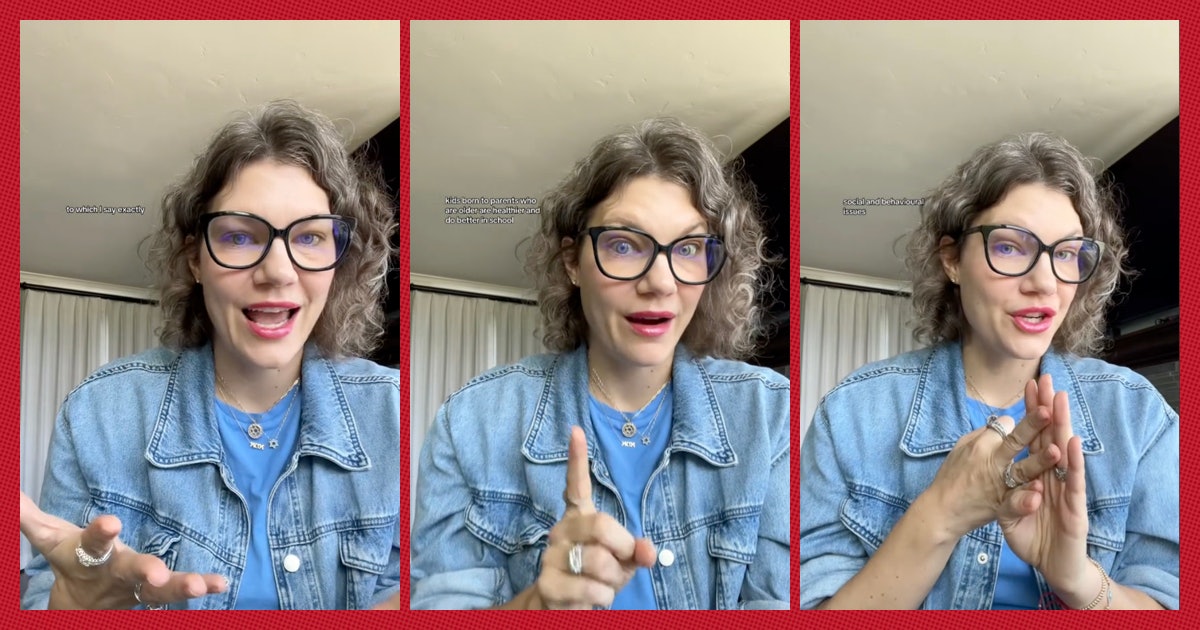Long before many of us have ever considered having a baby, we’ve been bombarded with some version of the message: “You have to get pregnant by 35.” Why? We’re given a lot of reasons, many of which are either exaggerations or straight-up myths.
“It’s so hard to get pregnant after 35!” (This isn’t always true.)
“It’s too dangerous to get pregnant after 35!” (Not born.)
“Your baby is at high risk for various genetic abnormalities!” (Increased risk does not equal high risk.)
But Dr. Noa Sterling, an ob-gyn who posts on TikTok as @drsterlingobgyn, has a positive message for moms in their 30s and older.
“Talking about the benefits of pregnancy over 35 is one of my favorite things,” she begins. “First, children of older parents are healthier and do better in school. Children of older parents also have fewer emotional, social and behavioral problems. Now the response to this is often, ‘Well, yeah. Because people who wait to have children are more financially stable,” and I say “exactly right” to that. …Many of us wait to have children so that we are more financially stable, so that our children do better in school and have better health better.
What’s more: Many of these studies actually control for socioeconomic status, so it may not just be better circumstances that come with age. That’s more than just good news for a baby whose parents are old enough to run for president. It seems there are benefits for moms, too.
“Multiple studies show that women who have children later in life actually live longer,” Sterling shared. Additionally, she cites another study that found that women who gave birth after age 35 had better cognitive scores and verbal memory skills after menopause than women who gave birth before age 35.
Again, a lot of this probably boils down to the idea that getting into a better socioeconomic position by waiting until the economy is more stable to start a family could work here…but why would you? Is it more important to show that this is entirely a genetic issue?
“Of course, in order to get these benefits, you have to get through pregnancy first,” she points out. “That’s why it’s important to talk about what we can do to reduce the risk of pregnancy complications after age 35.”
In a follow-up video, Sterling highlights the precautions people can take to avoid some of the more common problems that can arise in so-called “geriatric pregnancies.” Using low-dose aspirin to reduce the risk of blood pressure complications, such as preeclampsia, is a simple step that can have a huge impact. Cervical length screening and other measures she encourages people to discuss with their caregivers.
“We cannot just accept all risks and take no action,” she said. In another video, she highlighted another important caveat. “Some young people have a much higher risk of pregnancy than someone who gets pregnant at 38 years old. Most older women give birth to healthy babies.
Finally, when it comes to “advanced maternal age,” it’s important to understand your situation possible Be exposed to risk, but it’s also important to remember that possible risk (or even increased risk) is not necessarily doom. Talk to your healthcare provider, be proactive, then sit back and enjoy the joy of having a statistically healthy, well-adjusted child!




